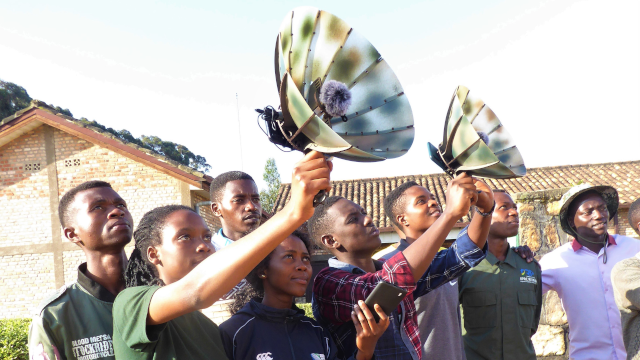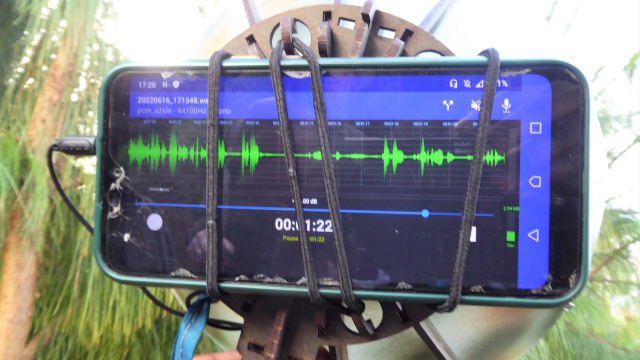In October 2021, Hilary MacBean of Planet Birdsong delivered a series of on-line webinars on birdsong recording with a view
to establishing a cohort of sound recordists and data gathers in Rwanda. This was followed by active real time backup and
tutoring through a WhatsApp group and in June 2022, a visit to Rwanda for face-to-face field training. The training continues
in an on-line format and between participants themselves.
A survey in October 2022, of participants trained in Rwanda revealed useful information on the veracity of citizen
science in Rwanda and the resources needed to make it a success.
In the summer of 2023, Trustee Hilary MacBean provided in person training across Rwanda. Read
the 2023 report to find out more.
In the winter of 2025, Trustee Hilary MacBean led an expedition of Planet Birdsong recordists in search of
Shelley's crimsonwing. Download
the 2025 report
to find out more.

